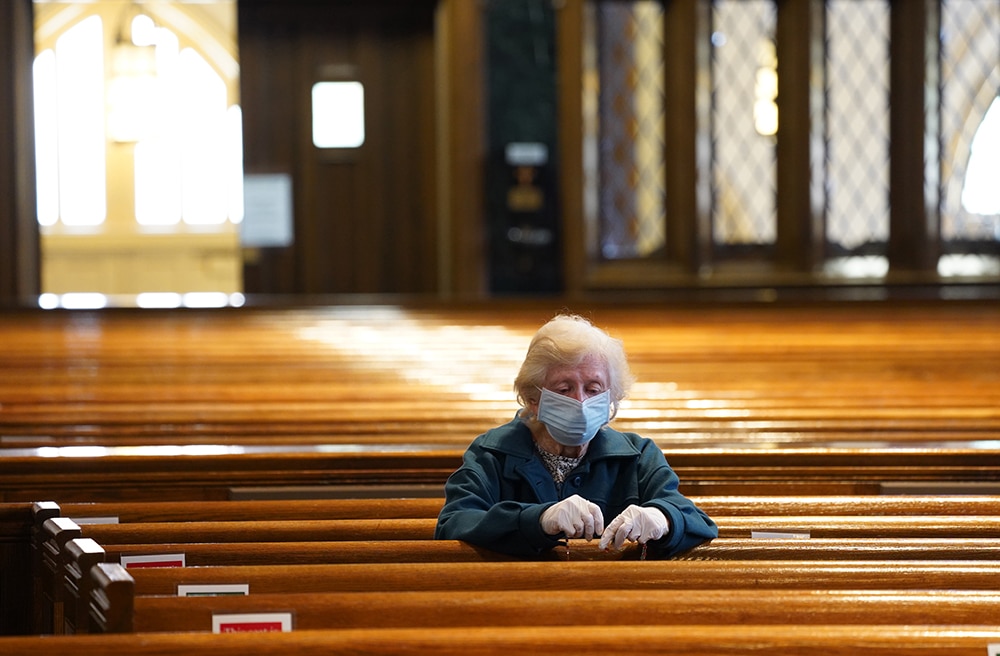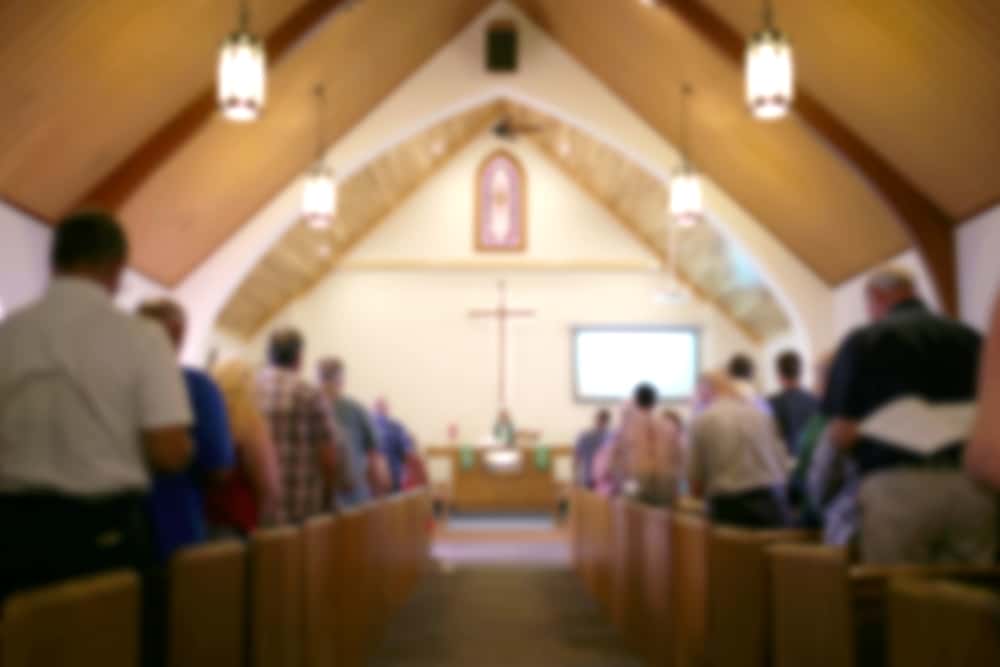
— Diane R., via email
Answer: Compel is too strong a word. A bishop can request that congregants comply with local civil norms, which in many locations require masks to be worn inside stores and other places where people gather in larger numbers and close proximity. As we begin to admit larger numbers into our parishes, the need to use masks grows, according to public health officials.
It is Catholic teaching that we follow just laws and ordinances that civil authorities set forth. Hence a bishop can exhort the faithful to comply with such norms even if the person does not like masks or doubts their usefulness. He can also exhort them to exhibit charity toward the vulnerable at this time. Finally, every Catholic ought to consider the moral implications of refusing to follow just laws or failing to show care and charity toward the vulnerable. Wearing a mask may be an irritation, but it is certainly not a grave burden, and bishops in most areas where public Masses are resuming have generally asked that masks be worn in Church facilities where required by civil law.
Jesus’ second coming
Question: The early Church expected the second coming of Our Lord during their lifetime. How do we explain this and the fact he did not come?
— Joann Capone, via email
Answer: It is widely held today, as you state, that the early Christians expected the Lord to return in their lifetimes. However this is not necessarily the case. St. Paul explicitly warns against this notion: “We ask you, brothers, with regard to the coming of our Lord Jesus Christ and our assembling with him, not to be shaken out of your minds suddenly, or to be alarmed either by a ‘spirit,’ or by an oral statement, or by a letter allegedly from us to the effect that the day of the Lord is at hand. Let no one deceive you in any way. … For the mystery of lawlessness is already at work” (2 Thes 2:1-3, 7). St. Paul in the same place goes on to set forth a number of things that the lawless one will do, much of which will take time.
You also reference Matthew in which Jesus says, “Amen, I say to you, you will not finish the towns of Israel before the Son of Man comes” (Mt 10:23). While this may sound to modern ears like a reference to the second coming, it is more likely a reference to Jesus’ judgment on Jerusalem, which took place in 70 A.D. The language is similar to that of the Mount Olivet discourse where Jesus describes the coming Jewish war with the Romans, and the ultimate destruction of Jerusalem (Mt 24, Mk 13, Lk 21). Jesus says in that context: “And then they will see ‘the Son of Man coming in the clouds’ with great power and glory … Amen, I say to you, this generation will not pass away until all these things have taken place” (Mk 13:26, 30). The context of the Mount Olivet discourse is clearly the destruction of Jerusalem, and Jesus says that the generation to which he was speaking would not pass away until these things happened.
Note, too, that he speaks of this judgment upon ancient Jerusalem as an example of him “coming in the clouds.” This is not a reference to the second coming; it is a common prophetic expression that speaks of God coming in “cloud judgment” on nations. A couple of examples of “cloud judgments” from the Bible are: “But during the watch just before dawn, the Lord looked down from a column of fiery cloud upon the Egyptian army and threw it into a panic” (Ex 14:24). And again, “See, the Lord is riding on a swift cloud on his way to Egypt; The idols of Egypt tremble before him, the hearts of the Egyptians melt within them” (Is 19:1). So we see that many references that seem to modern eyes to refer to the second coming actually refer to the coming of the judgment of the Lord on ancient Israel. Many scholars also believe the Book of Revelation pertains to this first century fulfillment rather than the end times since Jesus says he is revealing what must happen “soon” (cf. Rv 1:1, 22:6).
It is probably fair to say that some early Christians expected an imminent return, much like today, but not most. Further it was not taught by the early Church; if anything, it was refuted.
Msgr. Charles Pope is the pastor of Holy Comforter-St. Cyprian in Washington, D.C., and writes for the Archdiocese of Washington, D.C. at blog.adw.org. Send questions to msgrpope@osv.com.





